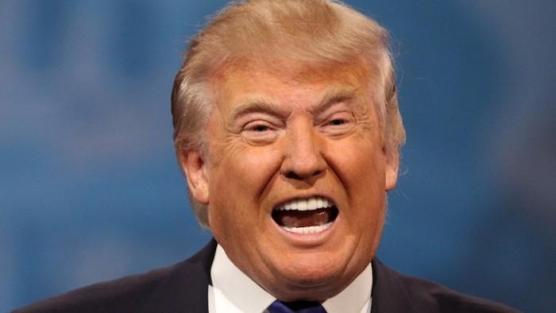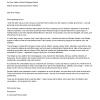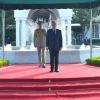Dear Mr. Trump,
It certainly isn't a revelation that America and its politics are sharply divided. Vilifying the "other" major political party is seemingly more palatable than advancing transformative ideas or reaching across partisan lines to achieve meaningful compromise.
Smaller factions within both major parties, though with greater emphasis on your side, command disproportionate influence while expressing little interest in bridging these divides. Significant numbers of Americans have disengaged from major parties altogether.
Increasingly stark divisions in socio-economic status are apparent, and despite varying degrees of progress overcoming divides involving race, ethnicity, gender and sexual orientation, there is much left to be done.
Moreover, justice in America often appears to be anything but blind notwithstanding the best intentions of innumerable honorable people who dedicate their lives to careers in public service as law enforcement officials, prosecutors, public defenders and judges, noting though that justice is broader than that.
The United States is indeed an exceptional nation but our collective psyche is fragile, prone to fear and susceptible to simple narratives. Mainstream understanding of complex issues is heavily filtered and the framing thereof often myopic, limited to periscope depth analysis and devoid of larger context.
Public opinion tends to support subordinating civil liberties that arguably define us to advance purported national security (and various other) objectives, particularly as they may apply to suspect or disfavored groups.
America has a checkered history in this regard relating back long before 9-11 -- from the fate that befell Native Americans to slavery and segregation, to internment of Japanese Americans during WW2, to Senator Joe McCarthy's assertions that "hundreds of Communists had infiltrated the State Department and other federal agencies... at a time of deepening national anxiety about the spread of world communism," which ultimately shattered many lives based upon innuendo and the resulting stigma -- all compelling but not exhaustive examples that lend insight we must not forget.
Human rights interests and national security imperatives aren't mutually exclusive and must be reconciled, especially in a society like ours predicated on the rule of law regardless of whether such considerations seem inconvenient or quaint; however, a reasonable balance is elusive - and the pendulum swings in both directions.
Your candidacy defies punditry across the political spectrum.
Your pronouncements regarding immigration and building a great wall on our Southwest border that would be paid for by Mexico, barring Syrian refugees from entering the United States, surveilling mosques and more recently proposing "a total and complete shutdown of Muslims entering the United States until our country's representatives can figure out what is going on," obfuscates real issues with hyperbole and the politics of fear, and conflates people fleeing from persecution with perpetrators thereof.
Humanitarian considerations aside, many counter-terrorism experts assert that your proposed courses of action could undermine rather than advance U.S. national security interests in part by perpetuating ISIS' narrative that the West is at war against Islam, generally a boon for radicalization.
Given your entrepreneurial savvy, one could reasonably speculate that your campaign strategy was informed by the kind of high stakes political brinksmanship and media manipulation that you address in your book Art of the Deal intended to generate earned media coverage in lieu of paying for it during the presidential primaries, if not more simply a function of a shocking lack of depth and understanding regarding public policy and the rule of law.
So with our willing suspension of disbelief fully engaged, we look out over the horizon through lenses tinted by expectations that your business acumen will at some point refocus to generating long-term value rather than short-term profit by recalibrating if not completely receding from a number of policy positions you've articulated.
For example, you advocate surveilling all mosques essentially to root out violent extremism which would be highly suspect legally, presumably overwhelm available surveillance assets and in any event redirect limited resources away from arguably greater vulnerabilities.
However, surveilling certain mosques - or any houses of worship -- based upon credible information indicating they foment radicalization could more readily be operationalized and pass constitutional muster.
And when you urge "real vigilance," making clear you won't tolerate any form of vigilante violence or intimidation for purported "retaliation" might help reduce the likelihood of such senseless acts of violence.
Regardless of whether you ultimately win the Republican nomination your bully pulpit is huge, perhaps rivaled only by the White House. Therefore you have opportunity and arguably responsibility to ensure that your messaging doesn't harken America to the dark side, irrespective of the challenges and threats we may confront.
You seemingly acknowledge this when you describe your decision to run for president as a higher calling. This next round of Republican presidential debates affords opportunity to reposition toward that end.
Sincerely,
Parvez Ahmed, Ph.D.
Mark Schlakman, Esq.
P.S. Since 9-11, we have collaborated alongside law enforcement throughout our state in an effort to reconcile human rights interests and national security imperatives.
*Mark Schlakman, Esq., is Senior Program Director at Florida State University's Center for the Advancement of Human Rights. He's served as principal investigator for the Center's Liberty in the Balance, Rethinking Civil Rights Restoration in Florida and, American Bar Association (ABA)/Florida Death Penalty Assessment Team Report projects. Mr. Schlakman held several senior positions in state and federal government, including assistant general counsel and then special counsel to Florida Governor Lawton Chiles; special advisor to Governor Jeb Bush during his first several months in office; senior advisor to Governor "Buddy" MacKay amid the governor's tenure as White House Special Envoy to the Americas during the final two years of the Clinton administration; and as a special advisor to U.S. Senator Bob Graham before returning to Florida. During his tenure in Washington, D.C., Mr. Schlakman also served as a Foreign Affairs Officer for the U.S. Department of State where he received its Superior Honor Award in recognition for his service to the Bureau of Western Hemisphere Affairs while assigned to the White House. He subsequently served as an Alternate Representative for the U.S. Permanent Mission to the Organization of American States (OAS) and as a special assistant to four-star Marine Corps. General Peter Pace, Commander, United States Southern Command (SOUTHCOM) at the outset of the George W. Bush administration.
Original Source: http://www.huffingtonpost.com/parvez-ahmed/open-letter-to-donald-tru_1_b...
















